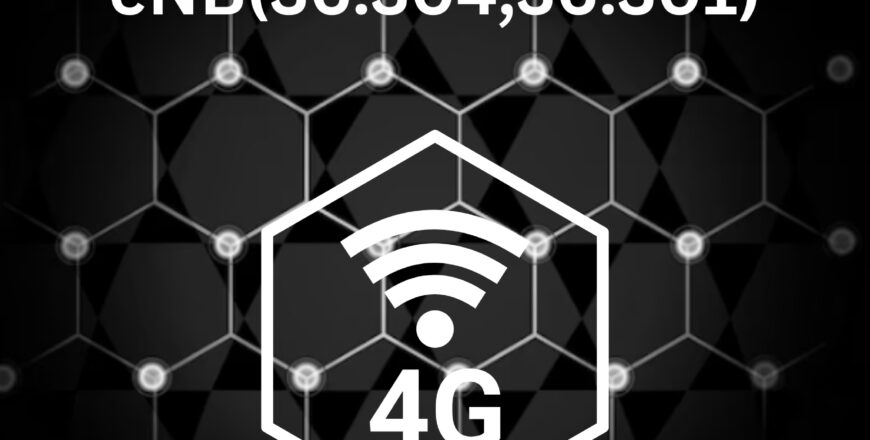4G LTE RRC Design – UE, eNB(36.304,36.301)

What you’ll learn
his course covers LTE 3gpp RRC protocol specification layer 36.304(Idle Mode) and 36.331(Connected Mode) details, including functionalities like broadcast information, paging, handover, RRC messages carrying NAS piggyback details, CSI, PMI, SR, BSR configurations, with PDCP, UM, AM, TM Mode of RLC along with the PHY configurations like PDSCH, PDCCH, PUSCH, PUCCH.
Requirements
Basic knowledge of wireless systems and protocols in the air interface domain.
Description
Whether you are a beginner in RRC or an experienced Technical/Managerial person, this course will help you get a head start with the 4G Radio Resource Controller, which is a Layer 3 RAN protocol.
For Beginners, it will provide a strong foundation in understanding the RRC features and functions as defined in the RRC specifications.
For Experienced people, this would provide a good structured recourse, with tidbits that are not explicitly mentioned in the specification.
The FAQ list that would be available to students on completion of the course, could help in Job Interviews.
Why take this course
The instructor possesses extensive experience as an early adopter of 5G RAN protocols, having implemented them since the initial standardised specifications were introduced for 4G. Through this course, you’ll benefit from their wealth of knowledge as they provide a comprehensive explanation of RRC (Radio Resource Controller) , a crucial aspect of 4G technology. Understanding RRC is essential for grasping the intricacies of 4G specifications, and the instructor’s expertise will greatly facilitate this process.
One notable aspect of the course structure is the careful consideration given to the duration of each sub-topic. The timing has been meticulously planned to ensure that students can maintain focus and absorb the material effectively. By breaking down complex concepts into manageable segments, the instructor creates an environment conducive to learning and comprehension.Upon completing this hour-long session, you’ll emerge with a thorough understanding of the 4G RRC protocol. Moreover, you’ll likely find yourself inspired and motivated to further explore the vast landscape of 4G RAN technology, armed with newfound
What Topics would you learn
Introduction
Idle and Connected Mode
Idle Mode Procedures
o Idle Mode Process Flow
o DL Synchronization & Initial Access
Frequency Scan, Cell Scan, Cell-Search
o SIB Timing and Reception
o PLMN Selection
o Cell Types
Suitable Cell, Barred Cell, Forbidden Cell, Selected Cell,
CSG Cell, Hybrid Cell, Blacklisted Cell, Reserved Cell
o Cell Selection- S-Criteria
o Cell Re-Selection – S-Criteria, Ranking, Speed Factors, Access Classes
o Paging – Timing
o System Information Reception
MIB, SIBs Introduction
Scheduling window and MIB and SIB Timing
SI-Window and Periodicity
SI-Acquisition & Timing
Reception of GSM, UMTS and CDMA System Information
TAU update( Registration)
Measurements
RRC Messages
o UL-CCCH RRC Messages
o DL-CCCH RRC Messages
o UL-DCCH RRC Messages
o DL-DCCH RRC Messages
o SRBs and DRBs of RRC
Radio ConnectionControl
o RRC Connection Establishment
o RRC Connection Re-Establishment
o RRC Connection Re-Configuration
o Request/Setup/Complete – Reject and Accept
o RRC Connection Release
o RRC Connection Release to Others RATs.
o Signalling Radio Bearers, Data Radio Bearers
o Security Activation procedure
o UE Capability Enquiry
o Recovery from radio link failure
o DL Information transfer
o UL information transfer
o RRC Timers
RRC Measurements
o Measurement Configurations
o Measurement Events – A1-A5 for Intra RAT
o Measurement Events – B1,B2 for Inter RAT
o Measurement Object, Measurement ID
o Report Configuration
o L3-Filtering
o Measurement Triggering
o Measurement ReportLTE Handovers
o Introduction to Handover
o Types of Handovers – Intra LTE, Inter-RAT
o Intra-LTE Handovers Types
X2-HO – with eNB Change
S1-HO
Without MME Change
With MME Change
Without SGW Change
With SGW Change
Without PGW Change
With PGW Change
When X2-HO Fails
RRC Procedures Involved
Mobility Control Info in RRC Connection config
Handover Failure
Radio Link Failure
o Inter- RAT Handovers Types
LTE to 2G – PS HO
LTE to 3G – PS HO
2G to LTE – CSFB
3G to LTE – PSHO
CDMA to LTE – PSHO
LTE to CDMA – PSHO
RRC Procedures Involved
Mobility from LTE to other RAT
MobilityFromEUTRACommand/Failure
Success and Failure case from EUTRA
HandoverfromE-UTRAPreparationRequest(CDMA2000) –
non-3gpp
CSFBParameterRequestCDMA2000
ULHandoverPreparationTransfer
Handover from GERAN/UTRAN to E-UTRAN
Inter-RAT Cell Change Order
RRC for Carrier Aggregation and Configurations – Rel-10
Self-Organizing Networks and Automatic Neighbour Relation
Bonus
Students who stay invested and complete this course, would get a list of commonly asked Job Interview Questions for RRC Also, these students could get discounts on our upcoming tutorials.
Who this course is for:
-
Telecom Professionals from Wireless Background such as RF, KPI, OAM, Config, NPO in 4G or 5G



